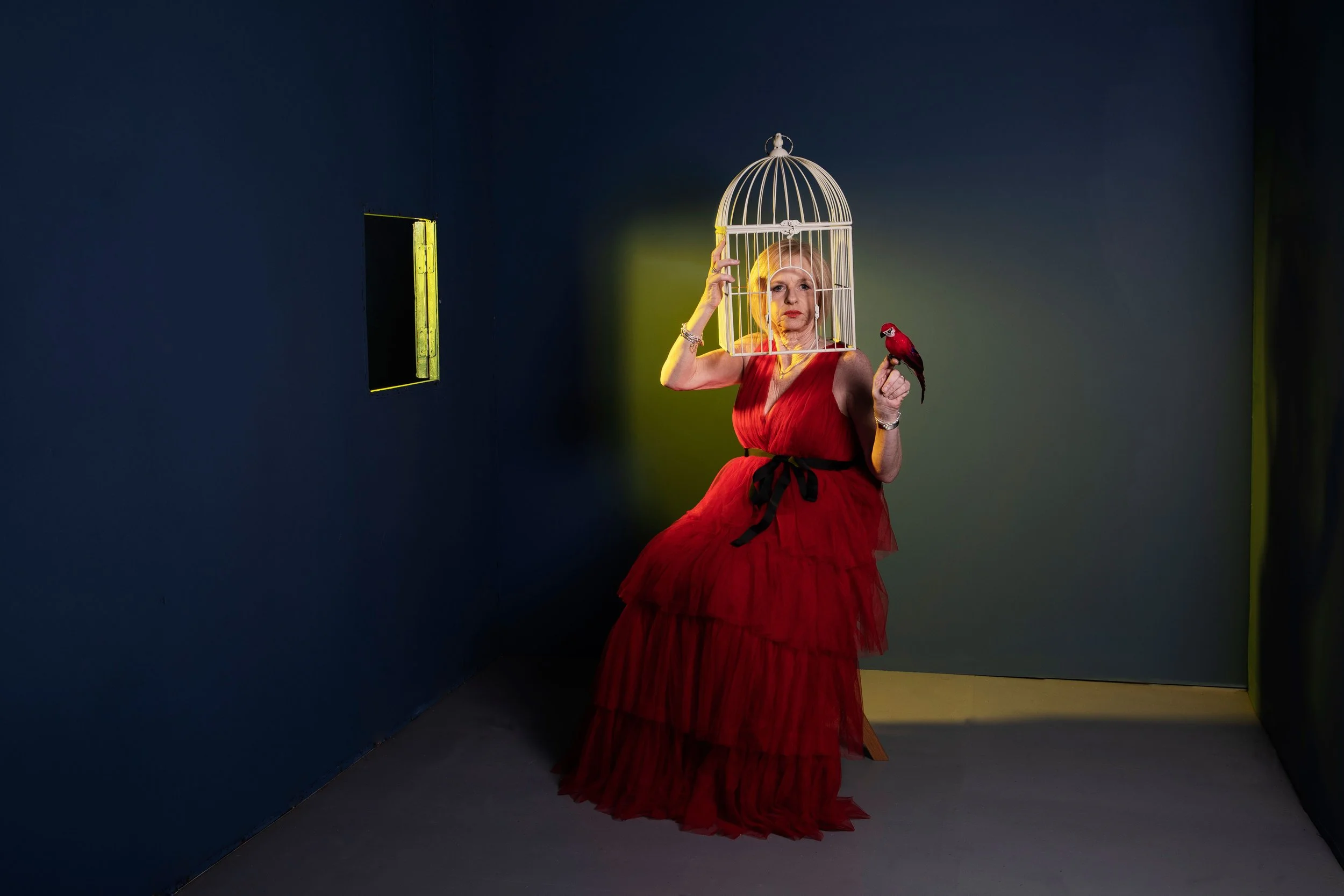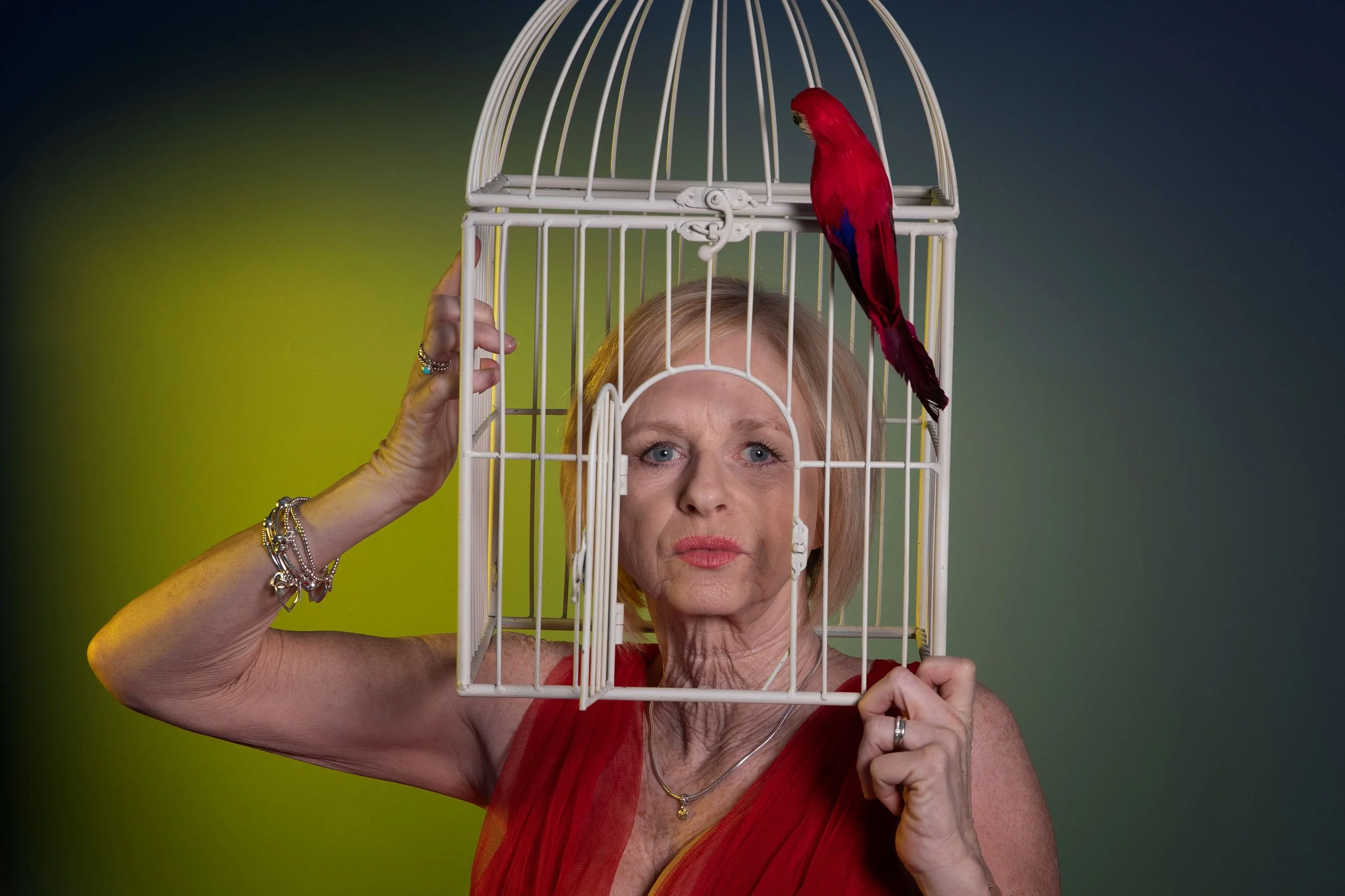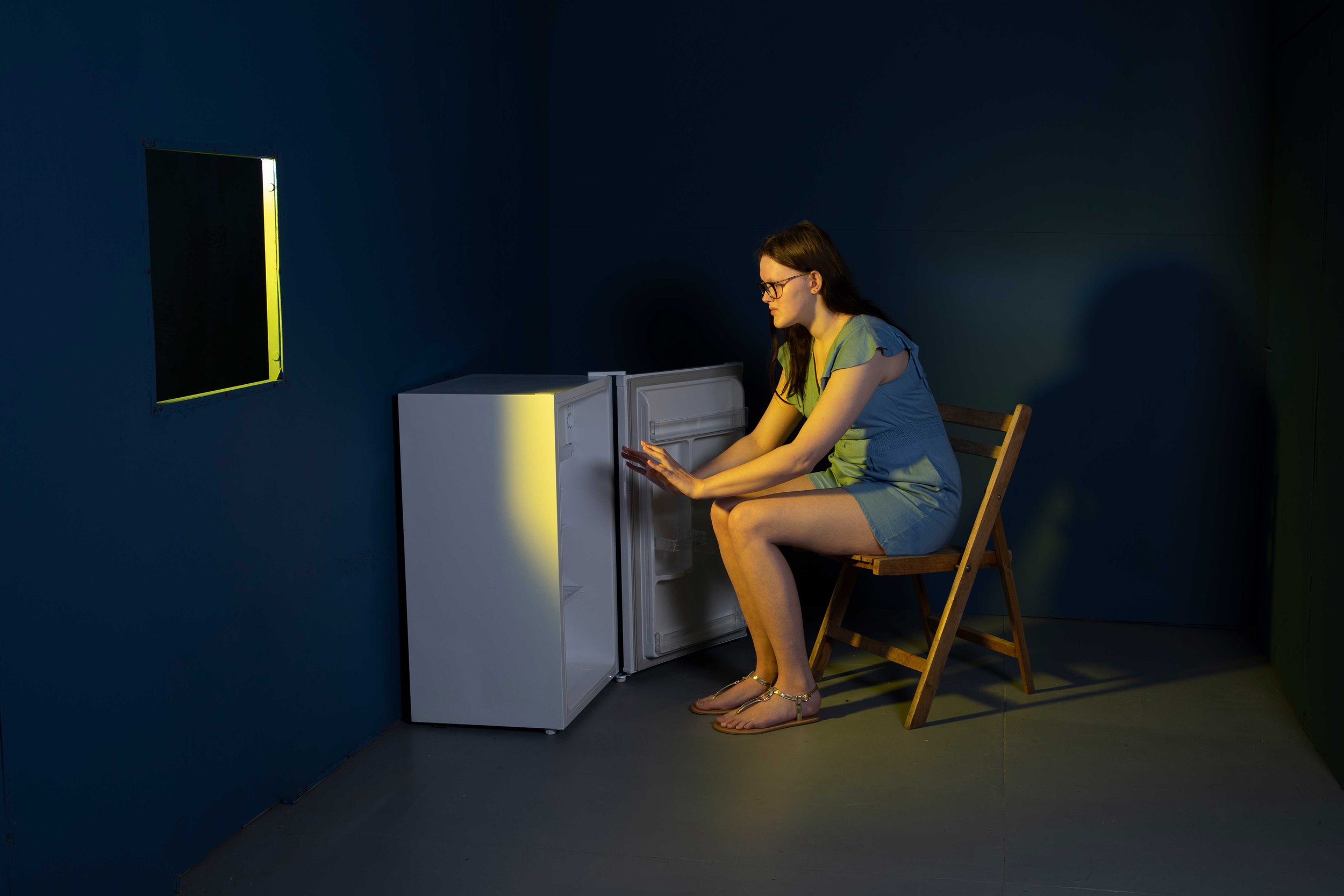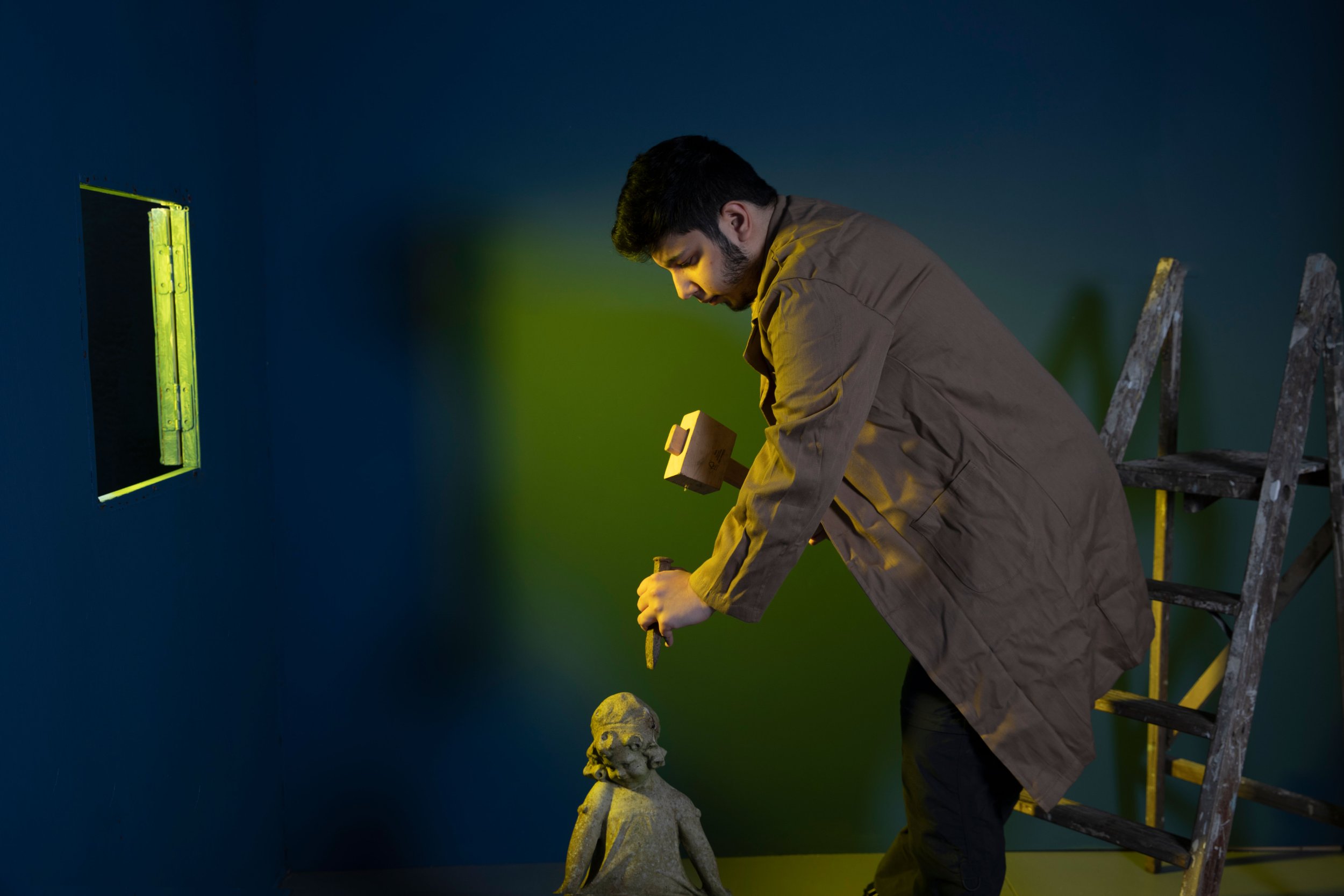Angela was diagnosed with a condition called Charcot-Marie-Tooth disease when she was 44.
Angela worked full-time as a mental health nurse, was a mum of one, had a fantastic social life and exercised three or four times a week. It was during exercise classes that she first started to really notice that something was changing.
I've always been clumsy, as a child I was very, very clumsy. But I found as I was getting older, it was getting worse. The feeling in my hands was starting to diminish, and I was getting lots of weakness in my legs. It only affects my lower nerves, so from the knees down and the elbows down. I found I was getting very weak and very fatigued, I couldn't coordinate like I used to.
When Angela went to see a sports therapist because she kept falling over and losing her balance in the classes she loved the sports therapist told her she had no reflexes in her knees or elbows. The sports therapist referred her to a consultant who did various tests, including nerve conduction tests, but in the end, it was a simple blood test that gave the result of the genetic disorder CMT.
Photograph by Ceridwen Hughes for Days of Rare exhibition
After her diagnosis, Angela refused to let things change an awful lot in the beginning. Instead, she remained in full-time work for another 10 years and made a few adaptations like an automatic car and some appliances around the house to make her life a little easier. Over the years she increasingly struggled to do simple things like fasten buttons and tying shoelaces, and fastening jewellery was impossible. Things most people take for granted she was finding very difficult;
And now there’s a lot I can’t do. I can't go for a walk, simple things like doing any form of exercise leave me feeling absolutely fatigued and in an awful lot of pain. Shopping is really difficult because I can go to the supermarket, hold onto the trolley and pack my stuff, but I can't lift things back into the car, I have to have quite a lot of help. I can't open jars, doing things like making a meal is quite difficult, pans are always really heavy for me and I need a lot of help. That's where my husband comes in. He's absolutely fantastic.
Considering CMT is quite rare, there is the belief within the community that there are a lot of people who are still undiagnosed. Currently there is no treatment for CMT. Angela hopes that the more awareness that can be raised, the better, in the hope that more people will be able to research and fund it. She wants to raise awareness and understanding of CMT to not only fund and research but to help inform people in everyday life. Living with an invisible disability is hard, and can be very isolating.
I want people to recognise that not all illnesses are visible. I've had people knocking on my car window when I've parked in a blue badge space telling me I look alright and there's nothing wrong with me.
Photograph by Ceridwen Hughes for Days of Rare exhibition
Charcot-Marie-Tooth disease (CMT) is a neurological disorder named after the three physicians who first described it. CMT is a group of inherited conditions that cause damage to the peripheral nerves which are found outside the main central nervous system (brain and spinal cord). The peripheral nerves are central in both the control of muscles and in relaying sensory information from the limbs to the brain. The symptoms of CMT usually start to appear between the ages of 5 and 15, although they sometimes do not develop until well into middle age or later. CMT is a progressive condition. This means the symptoms slowly get worse, making everyday tasks increasingly difficult.
Charcot-Marie-Tooth is progressive and degenerative but not life-threatening. Living with a rare condition like CMT is physically and emotionally hard. Adaptations to the way you live, and to your environment are often needed and they are ongoing and evolving.
It changes your perception of life. You have to learn to live with chronic pain. You have to learn to live with mobility issues. People stare at you when you walk in because you look like a prancing pony. That's what I was described as once, a prancing pony. I wish people would learn to look at things differently because I'm still in here in this body.
Angela has an appointment coming up soon at The Walton Centre for a neuromuscular assessment with a consultant who specialises in CMT, but shockingly this is the first appointment she has had since her diagnosis in 2007.
Even as an ex-healthcare professional, I find it shocking that this is my first appointment. I really do. When I first got diagnosed, I was told to go away and get on with it because there's nothing we can do for you. So I did, but I joined a support group, the CMT Wales support group.
Through her involvement with the CMT community and CMT support groups, she has become aware of the stark differences in the options for treatment that are available for CMT and similar conditions. There are similarities between Multiple Sclerosis, Muscular Dystrophy and Charcot-Marie-Tooth disease but because Angela has CMT she is unable to access the services available to MS and MD patients. Even your location seems to play a part in what services are offered.
It’s quite enlightening, really, looking up the differences between the treatment options in the north and south of Wales. A friend of mine, who I only got to know through the support group, lives in Swansea and has treatment plans and recovery plans. I don't have a treatment plan. So it’s quite sad to see the difference in the level of service delivered to people with this condition depending on where you live, I mean, I'm the only person in my GP practice with it. I think I'm the only person where I live in Denbigh with this condition. I begged my GP, and eventually, he referred me to a different neurologist. I'm hoping that this upcoming appointment with the specialist can point me in the right direction. I'll go out of county if I have to. I don't see why I should but I will, just to access something to make my life a little bit better. It's shocking in this day and age where medical care has advanced beyond belief, yet the services just aren't there.
Angela explains how CMT has impacted her life and how time has changed her outlook on life despite being hard at times;
When you've lived with something for a long time you just get used to it. You just get used to not being able to go out for a walk and not being able to do the things you used to. You have to just find yourself and that's what I'm trying to do. I'm trying every day to find out things about myself. It's made me appreciate everything so much. I appreciate myself a little bit more but I've had to dig deep, really deep to find something that I liked about myself again. All the things that I used to like about myself, like being social and doing all the active things, I couldn't do anymore. It made me feel very, very useless. I lost my sense of worth and my confidence. So, digging deep I've found other things that I can do to give me that sense of achievement and that sense of happiness within myself. It's been difficult but I think it's taught me an awful lot including not to take things for granted.
Getting happiness from doing the things she can, that she enjoys, and with the people she loves; spending time with her grandchildren, doing crafts and card making, painting and doing things around the house. Keeping busy and living as fully as she can. For her, the most important thing is that people understand more, are more aware of invisible disabilities and illnesses, and that they look a little deeper.
I just want people to know that regardless of what's going on in someone's life, or regardless of what's going on in someone's body, you're still the same person inside, continually growing and learning and evolving.
Charcot-Marie-Tooth UK
The organisation is working to support those living with Charcot-Marie-Tooth Disease as well as promoting and supporting research into CMT and its effects.
You can listen to Angela’s chat with Ilmarie Braun, Same but Different Project Manager on our podcast channel.







